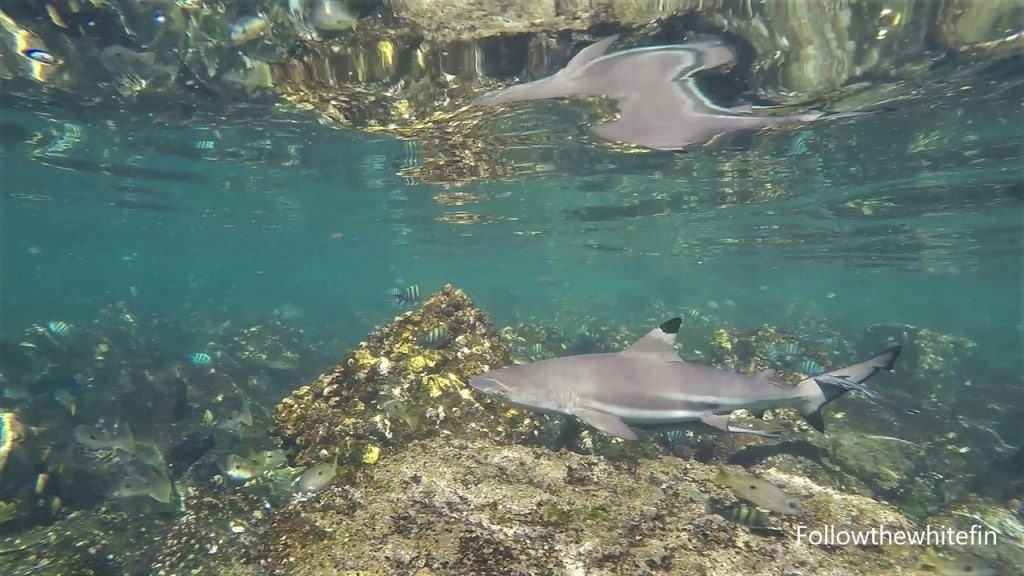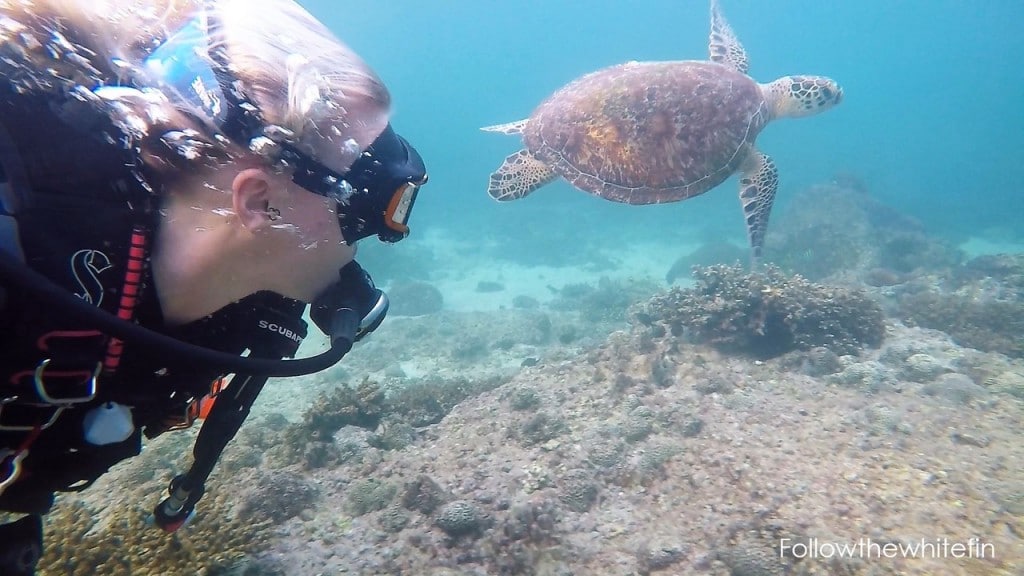News
Diving in the UAE: Who would have thought?!

An advert pops up for a diving instructor job in the UAE. I’m not sure if I’m just being naive but my first thought was ‘must be in Dubai’ and my second response was ‘really?’ If either of these was your reaction too, think again.
What’s in the UAE?
Firstly, to my surprise, the UAE does in fact extend past Dubai. A big proportion of the UAE is covered by desert yes, but I have seen that even this varies from rocky plains to huge seas of surf-able sand dunes (still on my to do list). The best thing about the desert is the wildlife, driving around the UAE and spotting random camels, donkeys and goats never gets old. To my surprise I found out that Abu Dhabi is home to voluminous ranges of mangrove systems, which are sanctuaries for a huge range of marine juveniles. A little birdy also told me it’s a great place to see Bamboo Sharks and dugongs. On the borders of Musandam and the east coast of UAE (where I live), here you have stunning mountain ranges that tower over the landscape for miles creating breathtaking coastlines.
The secret gems of the UAE
The east coast of UAE is still relatively sparsely built up, so the coastline has miles of amazing and mostly untouched reefs. This is where I get to work every day. On my first day working at Freestyle Divers, as soon as my eyes touched the water, I was greeted by multiple resident Hawksbill Turtles that now grace me with their presence every morning. The local house Reef “Dibba Rock” (a marine protected area) is booming with life, providing homes and shelters to a range of marine life: Blacktip Reef Sharks, cuttlefish, Hawksbill and Green sea turtles, rays and shoals of damselfish, fusiliers and snappers. The shallow side of Dibba provides a playground for underwater photographers who can capture perfect shots of shrimps and nudibranchs. With this much diversity and quality of corals, the reefs here are doing pretty well.
Close by there is an artificial reef, set up over 10 years ago, by strategically placing massive concrete triangle building blocks. The site is now flourishing with shoals of snappers, fusiliers, trigger fish, families of porcupine-fish and forming a hideout for rays.
A short 20-minute boat ride and further down the coastline you will find many similar dives such as Sharm Rocks, Martini Rock and Shark Island. For wreck divers there is Inchcape 1, 2 and 10 ranging from 18 to 35 metres. These oil rig tenders are coated in soft coral and a huge diversity of little critters taking shelter, just keep an eye out for the lionfish when you enter the wreck!
Tech Diver? UAE has you covered
One of the biggest draws to the region is the tech diving. I started here as a recreational diver but have finally given in to the ‘Tec side’ and just completed my PADI Tec 40. One of the main reasons for doing so is to dive UAE’s deep reefs like Cauliflowers (as the name suggests, the soft coral takes the form of cauliflower heads) at 40m. Going slightly deeper there are stunning wrecks such as the Ines which bottoms out at 72 metres, or a German U-Boat at a serious 115 meters. Obviously, my Tech 40 won’t get me there yet but watch this space!
Musandam
Just North of UAE there is Musandam, a region of Oman that has some of the bests diving spots I have come across. Caverns, walls, and drop offs from 10 to 100 metres plus, covered in endless masses of soft coral. On your dive the sun rays will suddenly disappear, you look up and realise the mass shoals of triggers, banners, barracuda and mackerel overhead have engulfed the sun with their spectacular parade. Giant Leopard Moray Eels guard the reefs while Eagle Rays gracefully swim by. You may even get to see whale sharks or a pod of dolphins whilst they migrate through. I could write pages and pages of reasons why you should dive in the UAE but why spoil the surprise. So, the next time you are booking a trip and want somewhere new and exciting, give UAE a try!
Diving Conditions
Visibility can vary, like most places around the world, but on the average, there is a good 5-10m. Temperature fluctuates through the seasons, with summer rising to 31 or 32°C and the winter months dropping to 20-22°C. This wide range of temperatures can bring plankton which is why there is such a variation of life in these waters and it attracts migrating species such as whale sharks, rays and turtles.
Find out more about Kayleigh at www.followthewhitefin.com.
Gear News
Introducing the TR-80, IR-50 and CS-30 Regulators from DYNAMICNORD

Whether you are a beginner or a professional diver – with the three new main regulators from DYNAMICNORD, everyone will find their favourite regulator. They all look super stylish.
Excellent performance with the TR-80
Quality and performance are the be-all and end-all for regulators. It is not for nothing that the TR stands for Tec Reg. The innovative design of the TR-80 guarantees absolute reliability – even in ice-cold waters.

Perfect breathing effort at 0.8 J/l / certified for diving in waters below 10 degrees / structural design made of solid brass for best cold protection / membrane-compensated design with dry seal of the first stage / reduced exhalation effort thanks to optimized exhalation membrane and bubble deflector / adjustable Venturi (dive/predive) and adjustment knob for individual inhalation comfort / innovative design of the front cover prevents free-flow in strong currents or when diving with scooters / design made of sandblasted brass, matt chrome finish / 2 HP and 4 LP outlets / mouthpiece made of high-quality, anti-allergic silicone for maximum comfort.


Amazing underwater adventures with the IR-50
The IR-50 is the top regulator for advanced and experienced divers. Natural breathing is the essence of this regulator.

Ideal breathing effort at 0.8 J/l /certified for diving in waters below 10 degrees / compensated membrane / adjustable venturi (dive/predive) and adjustment knob for individual inhalation comfort/ outlet valve and deflector for minimum exhalation effort and reduction of bubbles on the face / design made of sandblasted brass, matt chrome finish / 2 HP and 4 NP outlets / mouthpiece made of high-quality, anti-allergic silicone for maximum comfort.


The Workhorse – our CS-30
For diving centres and diving beginners – the workhorse stands for strong construction, reliability and robustness. Perfect for your training.

Optimal breathing effort at 0.8 J/l /recommended for diving in waters above 10 degrees / non-compensated piston / adjustable venturi (dive/predive) / outlet valve and deflector for minimum exhalation effort and reduction of bubbles on the face / design made of sandblasted brass, matt chrome finish / 1 HP and 3 NP outlets / mouthpiece made of high-quality, anti-allergic silicone for maximum comfort.


Octopus OP-30
The OP-30 is the ideal addition to all DYNAMICNORD regulators. It is identical in construction to the CS-30.

The TR-80, IR-50, CS-30 (DIN & INT) regulators and the Octopus OP-30 are available from DYNAMICNORD dealers and in the online store.
DYNAMICNORD – Your Outdoor Companion.
Marine Life & Conservation
Paul Watson Released as Denmark Blocks Japan’s Extradition Bid

Renowned anti-whaling activist Paul Watson has been released from custody in Greenland after spending five months in detention. Denmark’s Justice Ministry rejected Japan’s request for his extradition, citing insufficient guarantees that his time already served in custody would be credited against any potential sentence.
The 74-year-old Canadian-American was arrested on July 21 in Nuuk, Greenland’s capital, when his ship docked to refuel. His arrest was based on a 2012 Japanese warrant related to a 2010 encounter in Antarctic waters. Japan alleged Watson obstructed operations and caused damage to a whaling research ship during efforts to disrupt illegal whaling. Watson has consistently denied these claims, maintaining his commitment to marine conservation.
Denmark, which oversees extradition matters for Greenland, concluded that while the legal conditions for extradition were met, the lack of assurances from Japan regarding time-served credit made extradition untenable.
In a video shared by his foundation, Watson expressed gratitude and relief, saying, “After five months, it’s good to be out… and good to know they’re not sending me to Japan.” He added that the most difficult part of his time in custody was being separated from his two young sons.
Watson is a pioneering figure in marine conservation, known for founding the Captain Paul Watson Foundation in 2022 after decades of activism with the Sea Shepherd Conservation Society. His bold efforts to defend marine life have earned him widespread support, including from celebrities and conservationists. His work has also been featured in the acclaimed reality TV series Whale Wars.
Watson’s lawyer, Jonas Christoffersen, praised the decision, stating, “We are happy and relieved that Paul Watson is now free.” He added that Watson is eager to reunite with his family and continue his vital work.
The arrest occurred while Watson’s vessel, the M/Y John Paul DeJoria, was en route to the North Pacific with a team of 26 volunteers to intercept a Japanese whaling ship. His foundation described the arrest as politically motivated and emphasized that Watson’s actions were focused on ending illegal whaling practices.
Japan resumed commercial whaling in 2019 after leaving the International Whaling Commission, asserting that whale meat is a cultural tradition. Conservationists, however, continue to challenge these practices, highlighting their impact on marine ecosystems.
Despite the challenges, Watson remains steadfast in his mission to protect marine life and bring attention to whaling practices. His dedication to ocean conservation has made him a globally respected advocate for the environment.
-

 News2 months ago
News2 months agoIconic SS United States to become the World’s Largest Artificial Reef
-

 News3 months ago
News3 months agoBook Review – 52 Assignments: Underwater Photography
-

 Gear News3 months ago
Gear News3 months agoDYNAMICNORD – New German diving brand enters the British market
-

 News3 months ago
News3 months agoExploring Cenote El Pit: A Diver’s Dream
-

 Gear News3 months ago
Gear News3 months agoTry BARE drysuits (and maybe even win one!) this Friday with Sea & Sea at North West Dive Fest
-

 Marine Life & Conservation3 months ago
Marine Life & Conservation3 months agoBook Review: Coral Triangle Cameos
-

 Blogs2 months ago
Blogs2 months agoDive the Egyptian Red Sea this Autumn with Regaldive
-

 News3 months ago
News3 months ago2024 Ocean Art Underwater Photo Competition Announced


















